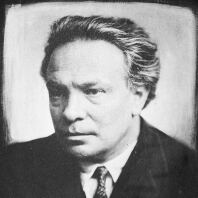奥托里诺·雷斯庇基
作曲
Ottorino Respighi belonged to a generation of Italian composers who, in the “land of opera”, consciously turned to instrumental music. In 1916, he composed his brilliant orchestral cycle Fontane di Roma, with which he established his worldwide reputation. In 1920, three years after its premiere, the symphonic poem was also heard for the first time in Berliner Philharmoniker concerts.
Born in Bologna in 1879, Respighi studied the violin and viola at the Liceo musicale in his home town from 1891. He then received composition lessons from Luigi Torchi, who researched and edited pre-Classical Italian music, and from Giuseppe Martucci. After completing his intermediate diploma, he worked as an orchestral musician: seasonally at the St Petersburg Imperial Opera and the Bolshoi Theatre in Moscow, before becoming a permanent member of the orchestra of the Teatro di Bologna. During his first stay in Russia, he took lessons with Nikolai Rimsky-Korsakov, whose brilliant orchestral treatment clearly influenced Respighi’s Preludio, corale e fuga, for which he received his composition diploma in 1901. In the spring of 1902, Respighi took a few lessons with Max Bruch in Berlin. In the following years, he met Arturo Toscanini and Ferruccio Busoni in Bologna, presented his first opera Re Enzo in 1905, and in 1906 began arranging Early Music. From 1908, Respighi worked in Berlin as an accompanist in Etelka Gerster’s singing school. On 12 October of that year, Arthur Nikisch and the Berliner Philharmoniker presented his orchestral transcription of Monteverdi’s Lamento d’Arianna, which established Respighi’s reputation as an accomplished arranger of older works. In 1911, he was appointed professor of composition at the conservatory in Bologna, before moving to the Liceo musicale Santa Cecilia in Rome two years later, where he was appointed director in 1924. The enduring success of his works made Respighi famous worldwide, particularly through the efforts of Arturo Toscanini. Although Respighi had also been a member of the Accademia d’Italia since 1932, he never joined the Fascist party and had no personal links to the Fascist regime. He died in Rome on 18 April 1936.